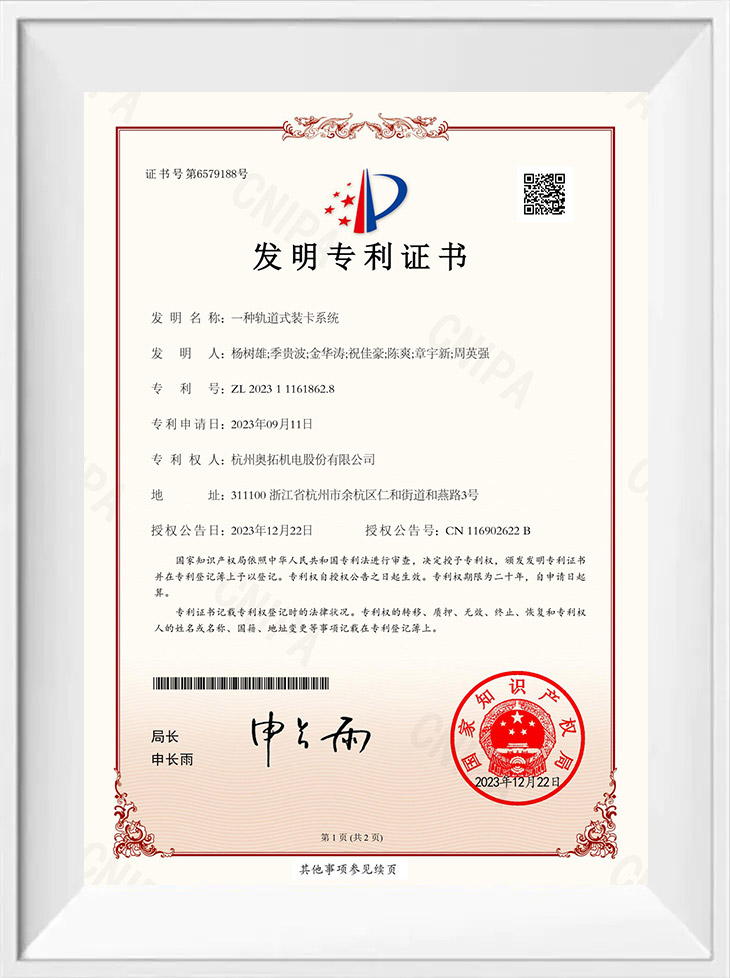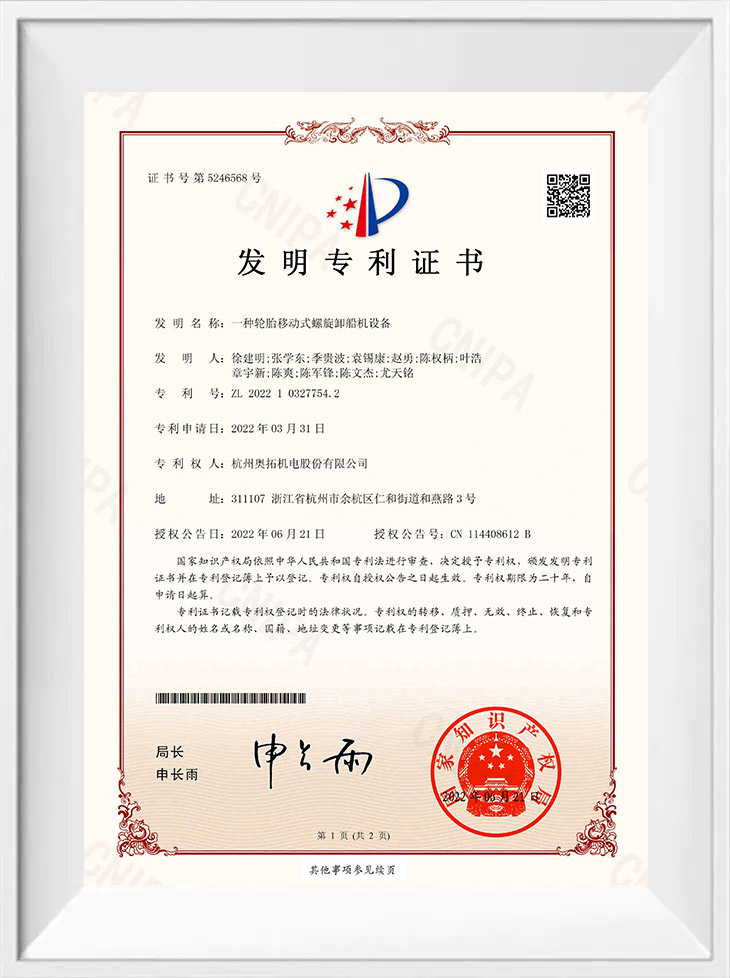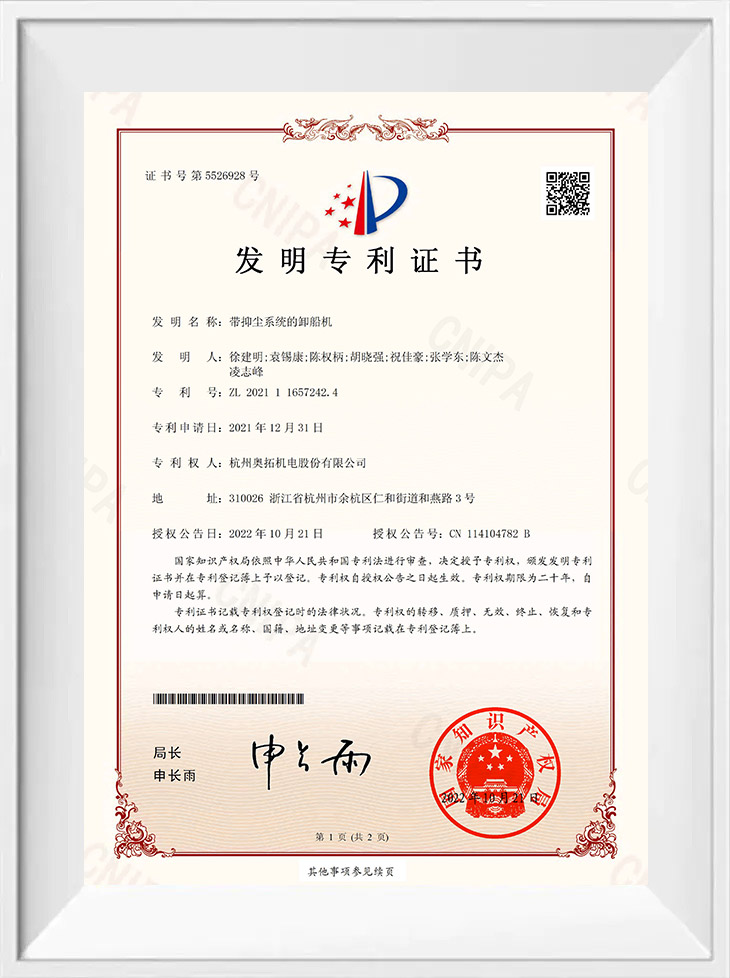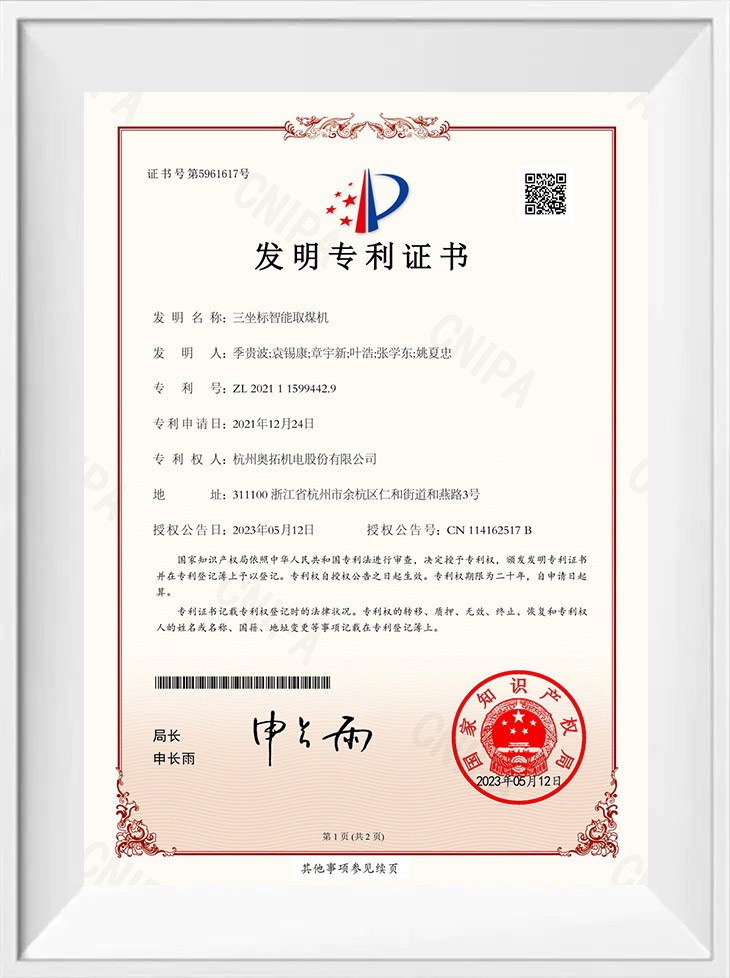-

Professionalism
-

Quality
-

One stop solution



News Center
News Updates
-
Admin 2025-12-12
Strategic Selection: Matching Ship Loader and Unloader Capacity to Port Operational Requirements
I. The Crucial Role of Bulk Material Handling Efficiency In the highly competitive dry bulk shipping...Read More -
Admin 2025-12-08
Aotuo Presents at Hangzhou Sand and Aggregates Supply Chain Innovation Exchange to Drive Industry Upgrading
Recently, the 2025 DongHai Forum—the Fifth China Sand and Aggregates High-Quality Development Summit...Read More -
Admin 2025-12-04
Maximizing Throughput: Precision Capacity Calculation for the Mobile ship unloader
Efficient port logistics depend on the reliable and rapid unloading of bulk cargoes. For the **Mobil...Read More -
Admin 2025-11-27
Operational Flexibility: Assessing Hatch Access and Clean-up Efficiency of Mobile ship unloader
For port operators and bulk material logistics companies, the true measure of a **Mobile ship unload...Read More -
Admin 2025-11-20
Environmental Compliance: Dust Suppression and Emission Control Features in Mobile ship unloader Systems
In the modern maritime industry, the operation of a **Mobile ship unloader** is scrutinized not only...Read More -
Admin 2025-11-13
Choosing a Mobile Ship Unloader: Capacity, Model, and Port Suitability Detailed Comparison
Introduction Overview of Mobile Ship Unloader A Mobile Ship Unloader is a specialized equipment des...Read More
1000-70000 DWT 200-1000t/h Shipborne Screw Ship Unloader Industry knowledge
A new era for port loading and unloading? How does Aotuo's screw ship unloader overturn tradition and lead a new trend of high efficiency and environmental protection?
With the increasing frequency of global trade, ports, as important hubs connecting sea and land transportation, have a direct relationship between their loading and unloading efficiency and automation level and the smoothness and cost-effectiveness of the logistics chain. Dry bulk cargoes, such as coal, ore, grain, etc., as bulk cargoes in international trade, have become the focus of the port industry in terms of efficiency, environmental protection and safety in loading and unloading operations. Hangzhou Aotuo Mechanical and Electrical Co., Ltd. (hereinafter referred to as "Aotuo"), as a national high-tech enterprise, is leading the technological innovation and development of the industry with its deep accumulation in the field of comprehensive solutions for port dry bulk material transfer systems, especially its innovative Shipborne Screw Ship Unloader technology.
Shipborne Screw Ship Unloader, or shipborne screw unloader, is an automated unloading equipment designed for large bulk carriers. It adopts the principle of screw conveying, and through the rotating screw blades installed in the cabin, the bulk cargo is continuously and evenly transported from the bottom of the cabin to the conveyor belt on the side of the ship, and then transferred to the onshore storage or processing facilities by the conveyor belt. Compared with traditional manual or grab-type unloading methods, screw unloaders have the advantages of high unloading efficiency, low energy consumption, low dust pollution, and easy operation. They are an important choice for modern ports to improve loading and unloading efficiency and reduce operating costs.
Screw unloaders can achieve continuous operation and are not affected by weather and tides, which greatly shortens the ship's stay in the port and increases the port's throughput. By precisely controlling the speed and angle of the spiral blades, the material is reduced from crushing and dust generation during transportation, while optimizing energy utilization, reducing energy consumption and emissions. Combined with advanced sensor technology, automatic control systems and remote monitoring technology, intelligent management of the unloading process is achieved, manual intervention is reduced, and operational safety and stability are improved.
Screw unloaders can be customized according to different ship types, cabin types and material characteristics to meet diverse unloading needs. The equipment has a reasonable structural design, is easy to maintain, and reduces long-term operating costs.
As a leader in Shipborne Screw Ship Unloader technology, Aotuo not only has a strong R&D team and advanced manufacturing technology, but also focuses on cooperation and exchanges with well-known ports, scientific research institutes and industry associations at home and abroad, and continuously promotes technological innovation and product upgrades. The company is committed to providing customers with a full range of solutions from solution design, equipment manufacturing, installation and commissioning to after-sales service, helping ports achieve green, efficient and intelligent transformation and upgrading.
With the continued growth of global trade and the accelerated advancement of port automation and intelligent trends, efficient and environmentally friendly loading and unloading equipment such as Shipborne Screw Ship Unloader will usher in a broader development space. Aotuo will continue to uphold the concept of "innovation drives development, quality wins the market", deepen technological innovation, optimize product structure, provide global port customers with better quality and more efficient services, and jointly promote the sustainable development of the port industry.

 EN
EN English
English 中文简体
中文简体 Français
Français



















